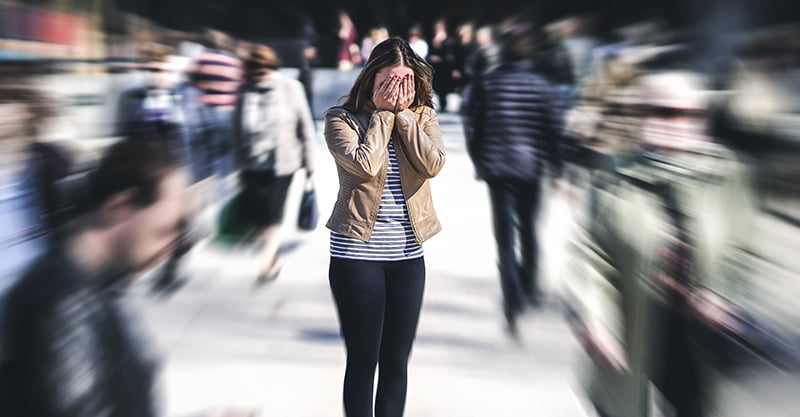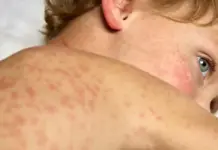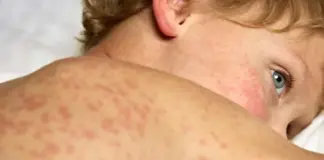
By the Children’s Health Defense Team,
NOTE: There can be no denying that America’s children and young adults are at a critical juncture. Unless we start admitting what we already know about environmental culprits and become willing to do something about them, children, young adults and our nation are going to continue to get short-changed.
Millennials (the generation born between the early 1980s and approximately the mid-1990s) just got some bad news. Health insurance data from 2017 show that many of them, especially older millennials in their mid-30s, are facing unprecedented levels of mental and physical illness.
According to a report released in April by the Blue Cross Blue Shield (BCBS) Association, millennials’ sharp decline in health begins around the tender age of 27 and stands in stark contrast to the health of the preceding generation—Generation X, born in the mid-1960s. For eight of 10 health conditions, millennials are experiencing double-digit increases in prevalence compared to what Gen Xers experienced at the same ages. Although four out of five millennials, ironically, perceive themselves to be in “good” or “excellent” health, both the BCBS report and a 2016 Harris Poll survey put the lie to these perceptions. In the survey, over half (54%) of millennial respondents reported having been diagnosed with at least one chronic illness.Interestingly, a national survey of children’s health conducted in 2007 produced exactly the same result as the Harris Poll for children ages 0-17: 54% of surveyed children had one or more chronic health conditions. The preteens and teens who participated in the 2007 survey fall squarely into the millennial time frame and would have been in their 20s when BCBS conducted its 2017 analysis. For anyone following America’s dismal child health trends over time, the news about millennials’ health can hardly come as a surprise.
Sick working-age Americans
BCBS analyzed data for 55 million commercially insured millennials—representing about 75% of all millennials in the United States. Using a measurement tool called the BCBS Health Index, BCBS considered the “reduction in future healthy years” due to various chronic health conditions.
In addition to highlighting the strikingly poorer health of millennials compared to Gen Xers, the BCBS report noted the following:
- Of the top 10 health problems affecting millennials, six are behavioral and mental health conditions (major depression, psychotic conditions, substance/alcohol/tobacco use disorders and hyperactivity) and four are physical conditions (hypertension, high cholesterol, Crohn’s disease/ulcerative colitis and type II diabetes). Behavioral health conditions affect millennials more than the U.S. population as a whole.
- Looking at the three-year period between 2014 and 2017, BCBS found that nearly all of the health conditions became more prevalent—especially major depression and hyperactivity, both of which increased by roughly 30% in just three years.
Another BCBS report (released in May 2018) examined major depression in millennials and adolescents. That study, which described major depression as “the second most impactful condition on overall health for commercially insured Americans,” reported a 47% increase in depression diagnoses in millennials and a whopping 63% increase in adolescents—especially teenage girls—from 2013 to 2016. Among those diagnosed with major depression, 85% had one or more additional health conditions.Although the BCBS report on millennials does not specifically mention anxiety disorders, the 2016 Harris Poll survey found that anxiety disorders were one of the three most common diagnoses among millennials. Fourteen percent reported an anxiety disorder diagnosis in that survey, and nearly one-fourth (23%) reported being diagnosed with any mental illness. In fact, anxiety is a prominent enough affliction for this generation that some writers have half seriously proposed renaming millennials as “Generation Anxious.”
Personal and societal implications
The BCBS report focuses on the impending macroeconomic impact of millennials’ declining health, pointing out that they will soon be the largest generation in the American workforce. According to BCBS, millennials’ health status “will likely have substantial effects on the American economy over the next two decades—including workplace productivity and healthcare costs.”
Equally sobering are the individual financial and quality-of-life implications of so much chronic illness at such young ages. For example, millennials carry more medical debt than older Americans “and incur it more frequently.” A news account discussing millennials’ escalating rates of formerly rare illnesses such as colorectal cancer and multiple sclerosis describes the phenomenon as “life interrupted”:
Life in your 20s and 30s is challenging enough with forging career paths, buying your first home, falling in love and deciding if you want to start a family without adding a chronic health condition to the mix. Unfortunately, there is a growing number of millennials whose lives are interrupted by chronic illness.
What is BCBS’s proposed response to the millennial health crisis? The insurer plans to conduct “Millennial Health Listening Sessions” to identify health care system fixes. A more necessary first step, however, is to call out the environmental factors that are undoubtedly at the root of the several-decades-old children’s health crisis that is now unfurling into young adulthood.Vaccines represent one group of obvious suspects, particularly if one recognizes that the millennial generation’s arrival on the scene roughly coincided with the end of manufacturer liability for childhood vaccine injuries and the beginning of the rush to pile ever-more vaccines onto the childhood schedule. Other environmental factors, such as the ubiquity of glyphosate in food, air, water (and vaccines) and young people’s immersion in a wireless-saturatedenvironment also merit close attention and an immediate response.
There can be no denying that America’s children and young adults are at a critical juncture. Unless we start admitting what we already know about environmental culprits and become willing to do something about them, children, young adults and our nation are going to continue to get short-changed.
Disclaimer: We at Prepare for Change (PFC) bring you information that is not offered by the mainstream news, and therefore may seem controversial. The opinions, views, statements, and/or information we present are not necessarily promoted, endorsed, espoused, or agreed to by Prepare for Change, its leadership Council, members, those who work with PFC, or those who read its content. However, they are hopefully provocative. Please use discernment! Use logical thinking, your own intuition and your own connection with Source, Spirit and Natural Laws to help you determine what is true and what is not. By sharing information and seeding dialogue, it is our goal to raise consciousness and awareness of higher truths to free us from enslavement of the matrix in this material realm.
 EN
EN FR
FR


























I see this in my grand children. I see anxiety, depression, allergies, skin conditions, under weight problems.
Basically, it all boils down to one simple thing; WHAT WE EAT!
but no one wants to listen…..they just go on gobbling up their DEAD EMPTY CALORIES in all the crap they eat and drink……..food is fun now, not for nourishment!!!
bad enough our food’s grown with incredibly dangerous pesticides, chemical fertilizers, etc., let alone ‘good’ food always being touted as ‘too expensive’ for most people…well, got news for ya; prescription drugs are expensive too…….which would you rather pay for?
there’s an old French saying I’ve always liked: ……you’re either going to pay the grocer or the pharmacist’…….amen to that!!
so come on, you ‘millenials’…use your heads and start eating healthier…..even if just a little bit to get started…….the end results of better health and well-being will amaze you!!
one more thought; ‘YOU CAN’T RUN A LIVE BODY ON DEAD FOOD”……….OK???
Learning how to eat wholesome foods and to cook starts at home.
If kids grow up with parents too busy to prepare fresh meals kids dont learn the importance.
If parents are ignorant to the dangers of non organic foods and processed foods they are screwed.
If parents dont have the means to provide wholesome foods its not the kids fault.
Alot of them are not being taught.
I raised my kids on Organic food. My 12 year old has never had a soda or a cavity but this starts with mom and dad.
I understand your frustration but its a difficult thing to change when you have ingrained habits. The foods are addictive as well which adds to the difficulty.
Its a very sad thing to watch for sure, especially when there is such an easy solution.
Peace